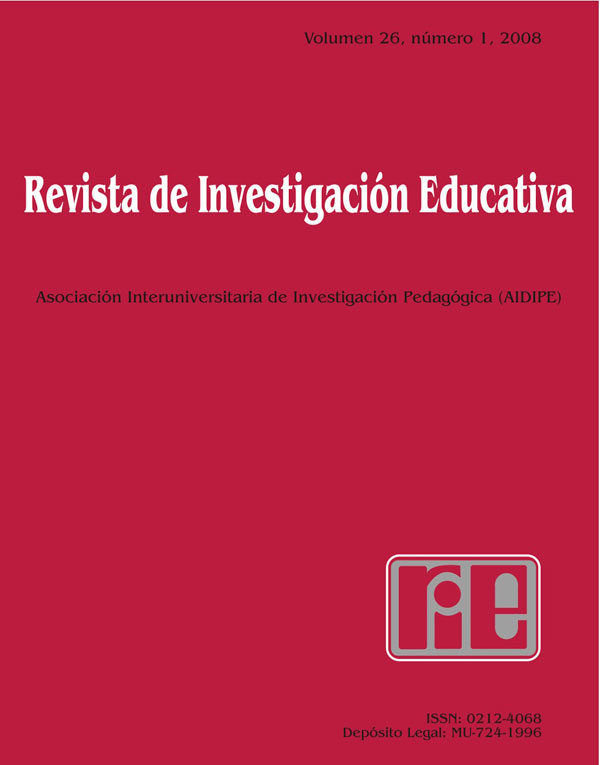Efectos del aprendizaje cooperativo en la adaptación escolar
Abstract
In this research we determine the part that the cooperative learning technique called “team assisted individualization” plays in school adaptation. To this end we have used a pretest-posttest control group design with a nonequivalent control group. To analyse the data we have used the t-Test of difference of means and the univaried split-plot analysis of variance. We have used the intelligence quotient as co-variable. The results obtained validate the hypothesis we started from: cooperative learning favours school adaptation (with teachers, mates, school work) and also improves parent-child relationships. We have confirmed the effects of cooperative learning are not related to the students’ intelligence quotient. To conclude we can point out, among other things, the importance of these techniques to prevent disruptive behaviour -endless source of conflict in the classroom.Downloads
-
Abstract4088
-
PDF (Español (España))2626
The articles and scientific documents published in RIE abide the following conditions:
1. The Servicio de Publicaciones de la Universidad de Murcia (the publisher) has the property rights (copyright) of all the documents published and allows the reuse under the user’s license indicated in point 2.
2. All documents are published in the digital edition of RIE under a Creative Commons Reconocimiento-NoComercial-SinObraDerivada 4.0 Internacional. (legal document) license. These documents can be copied, used, distributed, communicated and explained publicly if: i) the author(s) and its original source of publishing (magazine, publisher and URL of the document) are cited; ii) it is not used for commercial purpose; iii) the existence and the specifications about this license are mentioned.
3. Auto-archive’s conditions. The authors are allowed and encouraged to digitally distribute the pre-print versions (a version before evaluation) and/or post-print (a version that it is already evaluated and accepted to its publication). This promotes circulation and distribution earlier and can increase the citations and significance within the academic community.










